What’s the Buzz
The Bee Healthy Blog
Avoid Grapefruit While Taking These Medications

Grapefruit is high in nutrition and low in calories. It is a good source of nutrients like vitamin C and potassium. This citrus fruit is also low in saturated fat, cholesterol, and sodium. Therefore, grapefruit juice and grapefruit can be good additions to a healthy diet. However, drinking grapefruit juice and eating grapefruit, unfortunately, can affect how some medicines work. If your diet usually includes grapefruit and you’ve been prescribed a medicine that grapefruit juice affects, you should speak to your doctor or pharmacist. Do not stop taking the medication without medical advice.
Please continue reading to learn more about some common medications with which grapefruit juice and grapefruit interact.
Does eating grapefruit or drinking grapefruit juice affect medications?
Yes, there can be some food-drug interactions between grapefruit products and certain medications. In most cases, the drug interaction leads to increased blood levels of the medicine, causing an increased risk of side effects.
Now you may be wondering why only certain drugs interact with grapefruit. Here’s how the potential drug interactions happen. When you take the drugs by mouth, they are absorbed through the transporter cells in the gut. From there, they enter the bloodstream and travel to the liver where they are metabolized (broken down) or activated by the enzymes in the liver. Possible food-drug interactions can occur because grapefruit can interfere with these enzymes and transporters cells, causing blood levels of the medicine to fluctuate.
For example, statins that are used to treat high cholesterol are broken down by an enzyme called CYP3A4 in the liver and small intestine. Grapefruit juice can block this enzyme, allowing more of the statin drug to stay in the bloodstream longer. This can increase the risk of side effects like muscle damage, liver injury, and kidney failure. In addition, people have variable amounts of this enzyme CYP3A4 in their intestines and liver; therefore, grapefruit juice can have a different effect on people taking the same drug.
On the other hand, grapefruit can interact with some other medicines and have the opposite effect. An example is fexofenadine (Allegra), an antihistamine used to relieve allergy symptoms that are available by prescription or over-the-counter. This medicine is transported by certain cells in the small intestine. When you drink grapefruit juice or eat grapefruit, it blocks the action of these transporter cells. This interaction makes less fexofenadine available, causing the therapy to be less effective. Besides grapefruit juice, orange or apple juice also interact with fexofenadine in this manner.
What medications are bad to take with grapefruit?
The U.S. Food and Drug Administration requires some prescription and over-the-counter (OTC) drugs taken by mouth to have warnings against eating grapefruit or drinking grapefruit juice while on the medication. Some of the categories of drugs that can interact with grapefruit are described below.
Statin Drugs
Some statins like simvastatin (Zocor) and atorvastatin (Lipitor) have food-drug interactions with grapefruit. These medications are used to lower cholesterol in people with high cholesterol. Consuming grapefruit can increase the blood levels of these medications, increasing the risk of side effects. Doctors advise that you should avoid grapefruit and grapefruit juice altogether if you’re taking simvastatin. Drinking a glass of grapefruit juice several hours before or after taking atorvastatin should be safe. However, keep in mind that even with atorvastatin, you should not drink large quantities of grapefruit juice (more than 1.2 liters a day). You should talk to your doctor or pharmacist about which statin drugs are considered safe with grapefruit products.
Calcium channel blockers
These are a group of medications used to treat high blood pressure, angina (chest pain), and coronary artery disease. Some calcium channel blockers like nifedipine (Adalat CC, Procardia), felodipine (Plendil), and amlodipine (Norvasc) can interact with grapefruit, resulting in increased levels of the drug in the blood. Similar to statins, this interaction also increases the risk of side effects.
Anticoagulants and Antiplatelet Drugs
These are blood-thinning medications that prevent blood clots. Warfarin (Coumadin), an inexpensive, commonly-prescribed blood thinner, can interact with grapefruit. This interaction increases the effect of warfarin and makes bleeding more likely. The same is true of certain antiplatelet drugs like clopidogrel (Plavix) and ticagrelor (Brilinta).
However, it may be safer to drink fruit juice or eat grapefruit with some of the newer anticoagulants like rivaroxaban (Xarelto), apixaban (Eliquis), edoxaban (Savaysa), and dabigatran (Pradaxa). You do not need to avoid grapefruit if you are on low-dose aspirin or dipyridamole (Persantine).
Erectile Dysfunction Drugs
Men who take erectile dysfunction drugs like Viagra should know that grapefruit juice can boost blood levels of the drug. While this might be helpful in treating the condition, it can cause side effects like flushing, headache, and low blood pressure.
Anti-Anxiety Drugs
Grapefruit can increase the blood concentration of drugs used to treat anxiety and insomnia, for example, diazepam (Valium), midazolam (Versed, triazolam (Halcion), and buspirone (Buspar). During treatment with these medications, you should avoid consuming large amounts of grapefruit.
Corticosteroids
There can be a drug interaction between some corticosteroid medications such as budesonide (Entocort EC, Uceris) which are used to treat Crohn’s disease and ulcerative colitis.
Antiarrhythmic Drugs
Amiodarone (Cordarone, Pacerone) are medications used to treat abnormal heart rhythms. Grapefruit juice interacts with these medications and can increase side effects by increasing the amount of medicine in the body.
Antihistamines
Certain medicines may not work properly if you consume grapefruit during treatment, for example, antihistamines like fexofenadine (Allegra).
Organ Transplant Rejection Drugs
Cyclosporine (Sandimmune, Neoral), tacrolimus (Prograf), and sirolimus (Rapamune) are drugs that affect the immune system. They are given to people who have undergone organ transplants to suppress organ rejection. Food drug interactions between grapefruit and these medications can lead to an increase in the blood levels of the drugs. If you are on these medications, you should not consume grapefruit without talking to your doctor.
Frequently Asked Questions
Is grapefruit a blood thinner? Can grapefruit cause bleeding?
Grapefruit is not a blood thinner. However, it can cause some medications that are blood thinners to reach higher blood levels. This can increase the risk of side effects, including bleeding in different parts of the body.
Does grapefruit affect blood pressure?
Grapefruit can interfere with how the body absorbs certain blood pressure medications. This can leave too much or too little of the drug in the blood, causing fluctuations and potentially dangerous low or high blood pressure.
How do I find out if I can drink grapefruit juice with my medications?
You should ask your doctor or pharmacist if grapefruit interacts with the medications you are taking. You can also read the patient information leaflet that comes with your prescription drug or the information on your OTC drug package. If your doctor tells you not to eat grapefruit or drink grapefruit juice with your medication, check the labels of fruit juices like orange juice to see if they contain tangelos or pomelos (these are a cross between grapefruit and tangerines and can cause some of the same effects).
The Takeaway
This list is a general overview and does not include all the medicines that can be affected by eating grapefruit or drinking grapefruit juice. Many drugs can interact with grapefruit. Moreover, while grapefruit interacts with some medications in the categories mentioned above, it may not interact with other drugs in the same category. Also, the drug interaction can vary from person to person, causing no effect in one person and severe side effects in another person.
Family physicians can provide medical advice and trustworthy health information. You should talk to your family doctor about whether grapefruit juice affects a particular drug and read the patient information leaflet. You should also ask your healthcare provider or pharmacist whether taking your medications is safe with other juices. If grapefruit is a part of your regular diet and affects how a medication works, your doctor may advise against consuming grapefruit while taking medicine or decide to put you on a different medicine.
References:

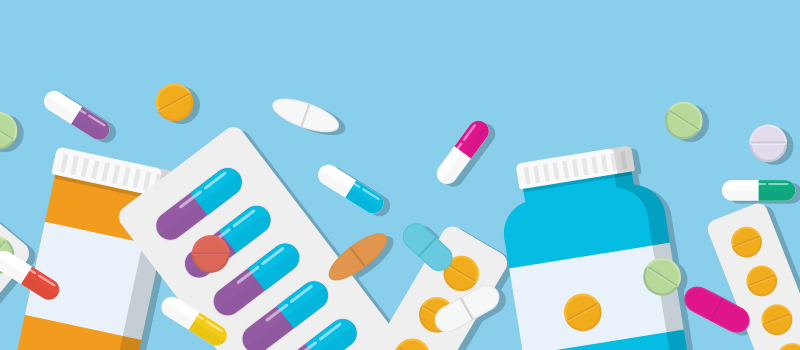
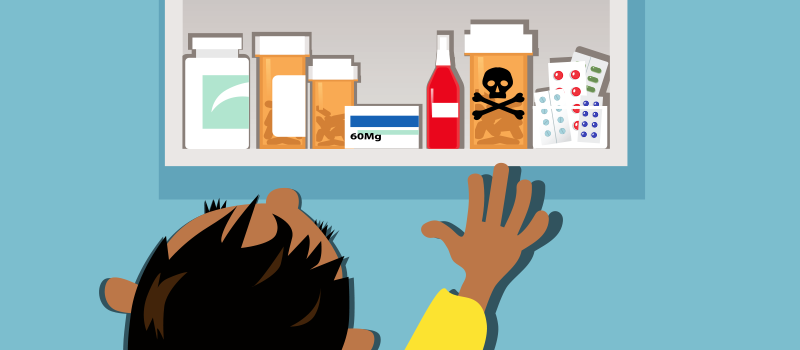
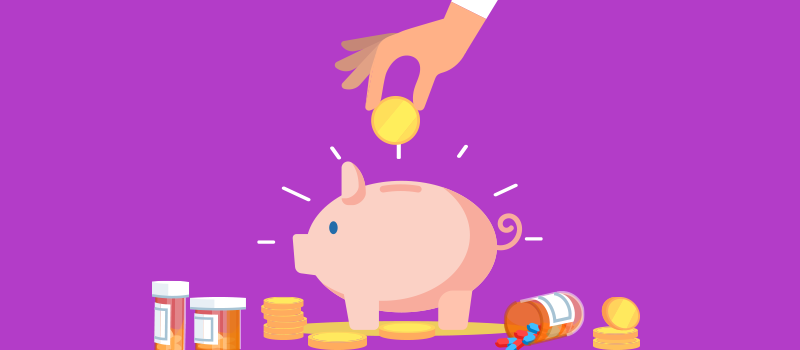
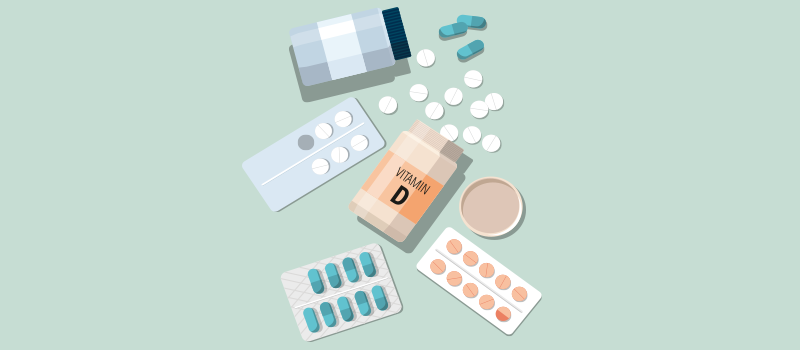

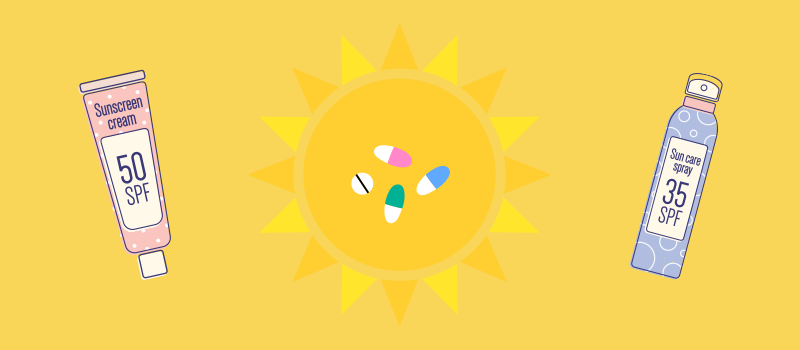




SOCIAL